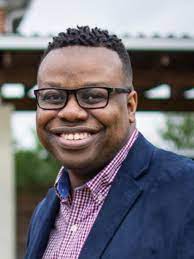Part two in a two-part series. View part one here.
Dr. Adam Phyall looks to connect while also learning from other attendees, even those taking part in his sessions. As he adds, “I may be sitting there as a featured speaker, but I learn just as much from the attendees and the other speakers; and they learn from me because everyone has his or her own story. What I love is [going] out there and sharing my stories or best practices.”
It’s about making people feel comfortable and setting up a symbiotic relationship where sharing occurs from both perspectives, creating an environment of even greater collective learning.
“That’s what it’s all about because you have to grow in these conferences. People say, ‘Iron sharpens iron.’ [If] you are a person with talent and skill, I want to learn from you, and hopefully, you’re learning from me,” he says. “I definitely want people to get a general understanding from my sessions that all students can do something and have potential. We can foster that through engagement and creating relationships.”
Adapting the Right Game Plan
Energy is an essential component, and Phyall knows it has a contagious effect. There’s a level of positivity that every classroom and media center needs, and it’s that same attitude he likes to put forth during conference sessions. Phyall is aware that the conference is not the endgame, and it’s what takes place after that truly matters. He adds, “Going to a conference, getting in a session, that’s the easy part. The hard part is actually putting into practice the things that you see and leaving with a game plan.”
A conference can resemble a buffet according to Phyall, where everything looks good at first sight, so it’s important to not only go in knowing the parameters of what you’re looking for but also how it fits into your environment. “If you’re going into a session and you know, ‘Hey, I’m looking for ways to engage my students of different backgrounds,’ make sure that you’re looking for ways to incorporate that into your practice in your respective workspace.”
Providing Key Takaways
When it comes to presenting at conferences, everyone has a story to tell, but it depends on how you tell the story that matters. Even more importantly, Phyall asks, “Can other people take that story, internalize it, and do something with it?” It should be real, authentic and delivered in a way that everyone can identify with and adopt. “That’s definitely the key to doing this.”
Subscribe to edCircuit to stay up to date on all of our shows, podcasts, news, and thought leadership articles.







